

1:30 am IST - 3:00 am IST
Past Event
1:30 am - 3:00 am IST
Brookings India
New Delhi
110021
Content from the Brookings Institution India Center is now archived. After seven years of an impactful partnership, as of September 11, 2020, Brookings India is now the Centre for Social and Economic Progress, an independent public policy institution based in India.
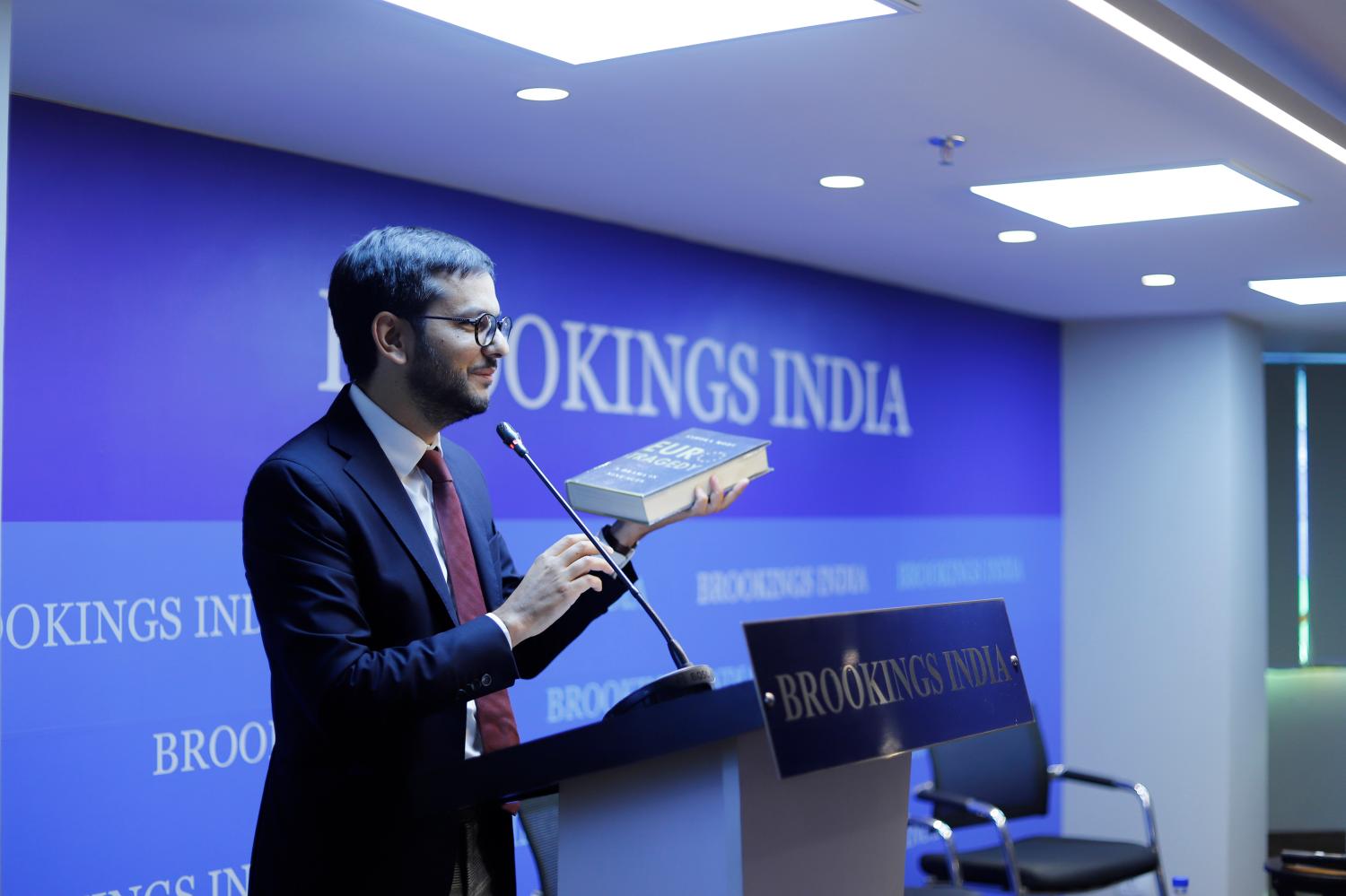
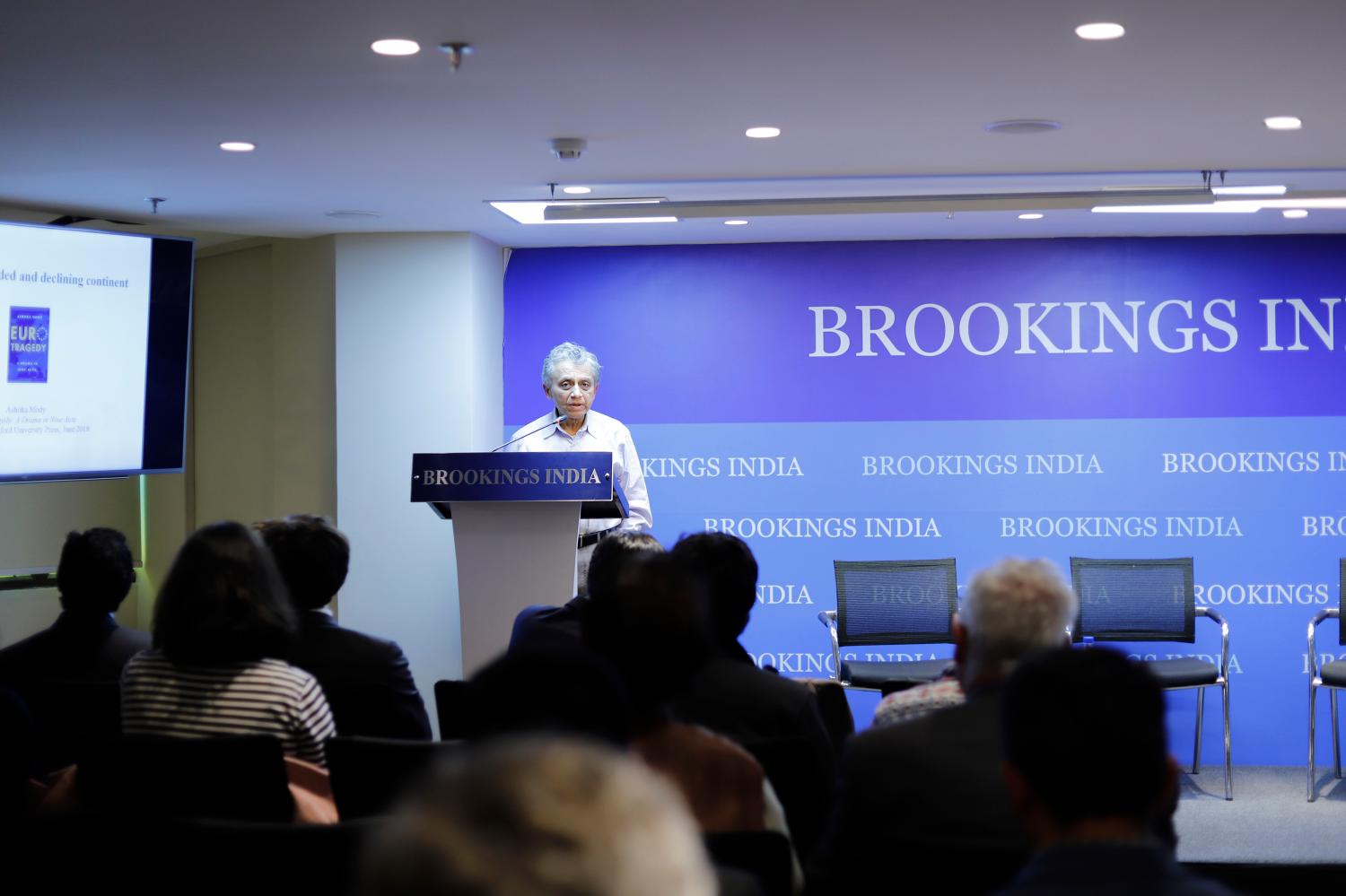
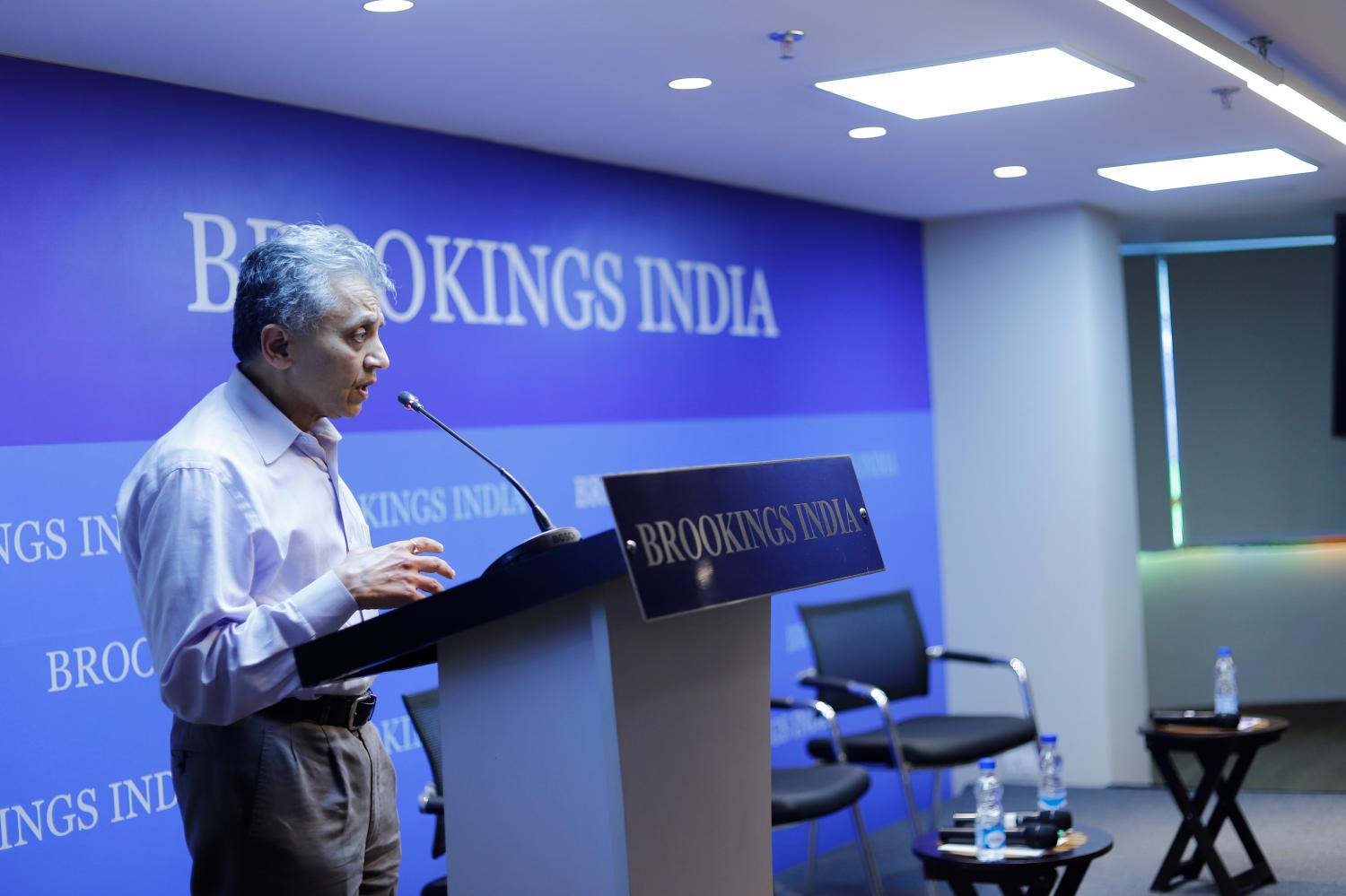
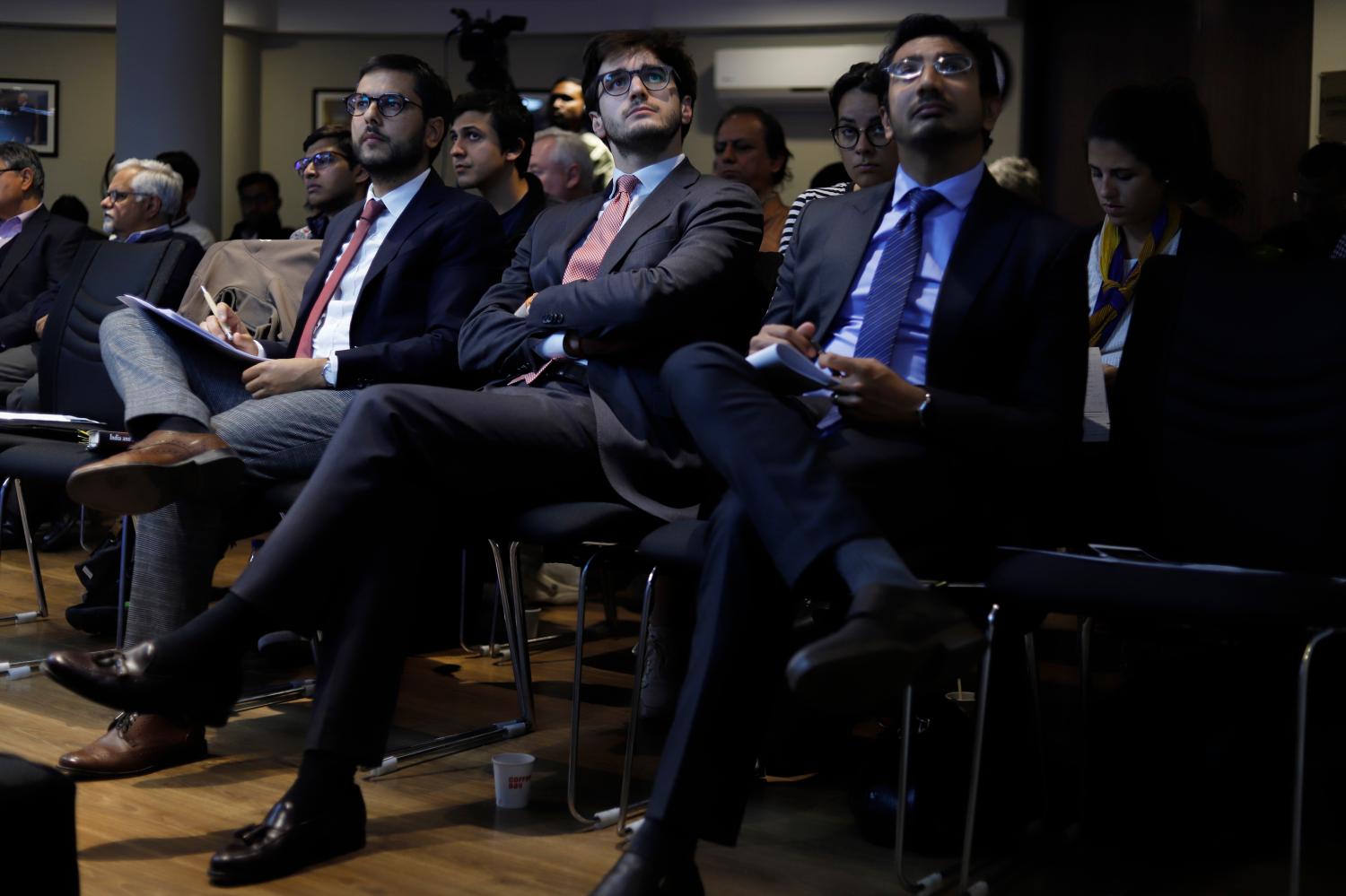
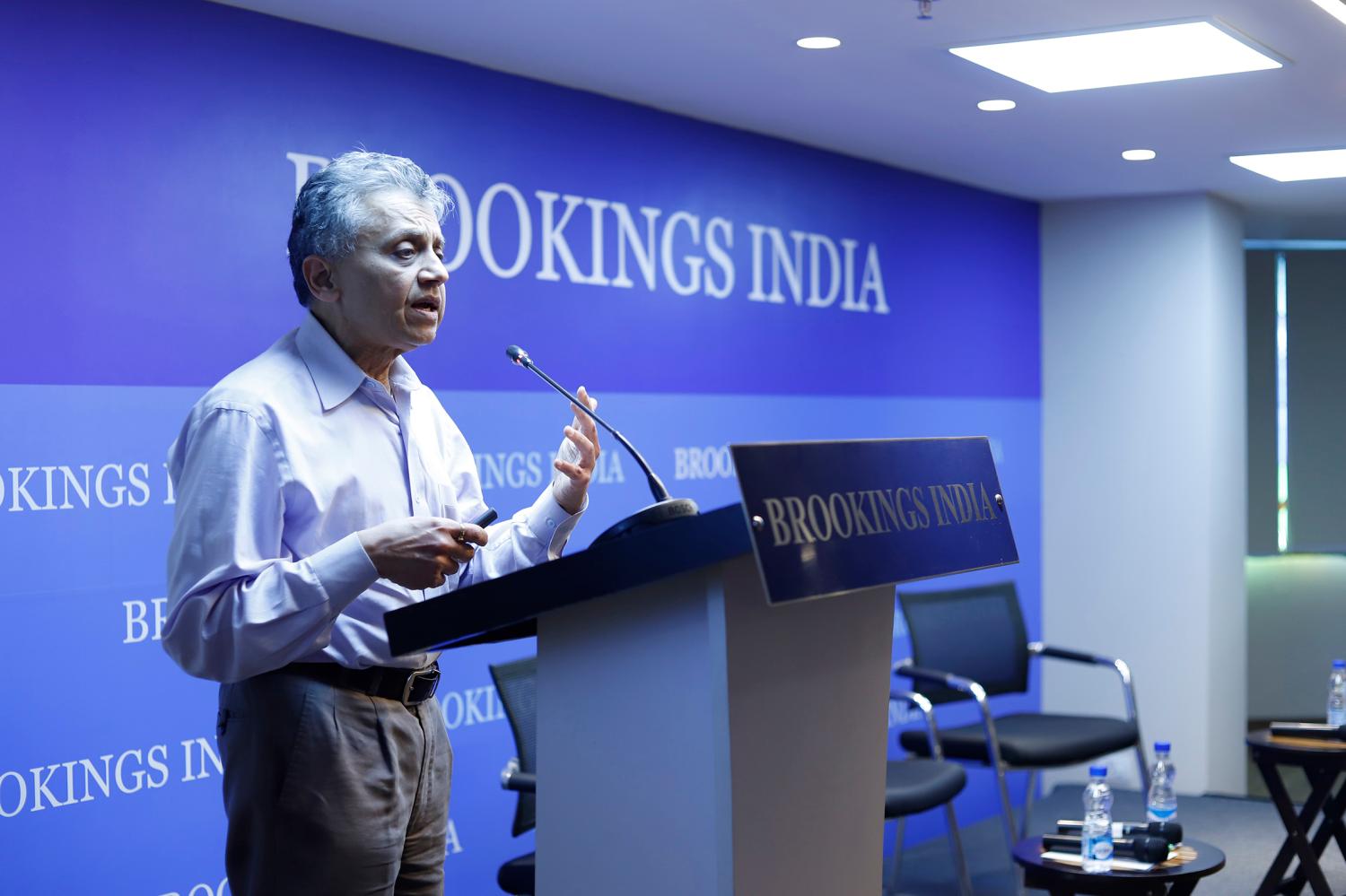
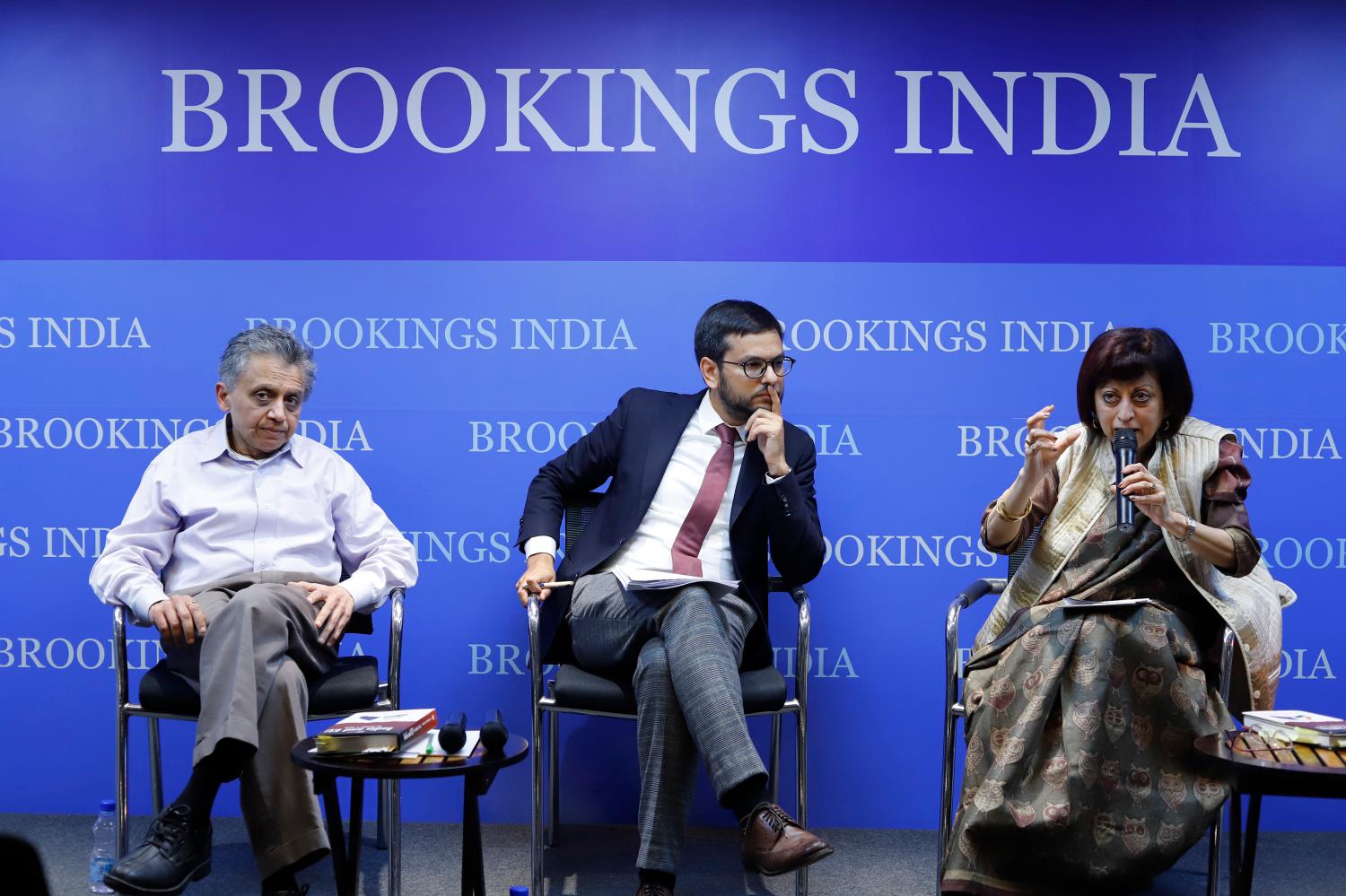
Event Summary
The Euro as a political project
In his dynamic and incisive overview of the Euro currency project, Mody explores the tensions between the economic and political dimensions of the European integration process. He argues that rather than enhancing the European Union, the monetary union was driven by political imperatives and thus accelerated economic divergences. He thus describes Europe’s ‘one monetary policy for all’ as being “too strong for the weak, and too weak for the strong.” In the absence of regular fiscal transfers, which allows for minimising the volatility of a currency during times of economic crisis, an instrument often used in other federations such as the United States and India, Mody predicts that the Euro will continue to deepen existing political divisions. This situation is most evident in the case of Italy, which he described as the “theatre of the Euro tragedy” and is representative of several other European national economies that are affected by their decreasing global competitiveness and abysmal levels of scientific and technological innovation. While Mody acknowledged that the Treaty of Rome was an “extraordinary achievement”, he argued that, in contrast, the Euro as a failure, because “it makes some nations more equal than others” and, in some instances, gave Germany an effective veto power. He adds that in order to overcome the current differences, manifest in instances like the ‘Yellow Vest movement’ in France, European Union member states will have to address these structural challenges amidst a rapidly changing global economic environment that is favouring China and other Asian economies.
Failure foretold?
In his book,Mody lays out the historical foundation of the EU to demonstrate the early warning signs of its impending tragedy. The birth of the Eurozone as it exists today could be attributed to the report by the Werner Committee in 1970. Almost instantaneously, economist Nicholas Kaldor critiqued the idea, arguing that a single monetary policy for a variety of countries would result in greater economic divergence causing certain countries to be “more equal” than others. The amplified economic disparity, in turn, would deepen political divisions in Europe. Therefore, the single currency would divide rather than integrate European countries. Kaldor’s warning was dismissed by the optimism of European leaders, who believed that such liabilities would eventually cease to exist as supranational organisations would triumph over nation-states, increasingly believed to be an antiquated concept. A proponent of the Treaty of Rome, Robert Marjolin, warned that the notion of the nation-state was far from irrelevant. Moreover, a monetary union would involve relinquishing core sovereignty in taxation and spending rights, a change too profound for countries to comply with. Mody additionally highlights the core role of former German chancellor Helmut Kohl, who single-handedly carried forward the European project to completion. He delivered the Euro to the French, on whose initiative it was created, albeit on German terms – that his country would not be the financier of future crises in the rest of Europe. Mody argues that the Europeans embarked upon the Euro not knowing what the end goal was, and consequently ended up elsewhere. Mody draws on the framework of history to explain the EU and its crisis in contemporary times.
The EU beyond the Euro
Serving as the lead discussant, Ambassador Bhaswati Mukherjee offered a counter view to the idea of the decline of Europe. “Europe is not in decline, and it would be a great mistake for the international community to think so,” said Mukherjee. She questioned if there was an overreaction to the decline of Europe and noted that it was important to understand the many achievements of the European Union; the rule of law, fundamental freedoms, strong institutions, and democratic governance, all of which were respected around the world. Europe has avoided large scale war within its borders; as Helmut Kohl said, -“nations with a common currency never went to war against each other. A common currency is more than the money you pay with.” The panel noted that the Euro remained a strong currency, resisting periods of global financial crises and offered benefits of greater transparency in transactions. Participants noted that the growing membership, success of the Baltic countries and desire to join the Union was representative of the value the EU still held.
Implications for India
As India’s largest trading partner and key foreign direct investor, the EU plays an important role in India’s growth story. The EU accounted for €85 billion worth of trade in goods in 2017 or 13.1 percent of total Indian trade. The EU is also India’s largest source of Foreign Direct Investment, accounting for 24.45percent of total FDI flows to India. Participants noted that for India, the success of the European project was a vital objective. Mukherjee noted India’s contribution to the revival of the Eurozone, when India contributed $10 billion to the International Monetary Funds’ additional $430 billion financial firewall in 2012 so that the faltering world economy is protected against the spread of any financial contagion. She also underscored that there exists limits to the EU’s normative foreign policy, reliant on soft power, to meet the needs of the Eurozone. In order to realise the potential of its strategic partnership with India, the EU would have to provide a greater hard power element to its partnership with India.
Moderator
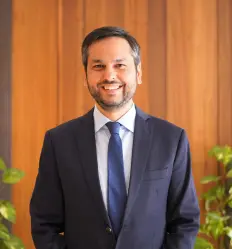

Rahul Tongia, Anurag Sehgal, Puneet Kamboj
2020
Online Only
Tuesday, 3:00 am - 4:40 am IST

Saneet Chakradeo
August 18, 2020